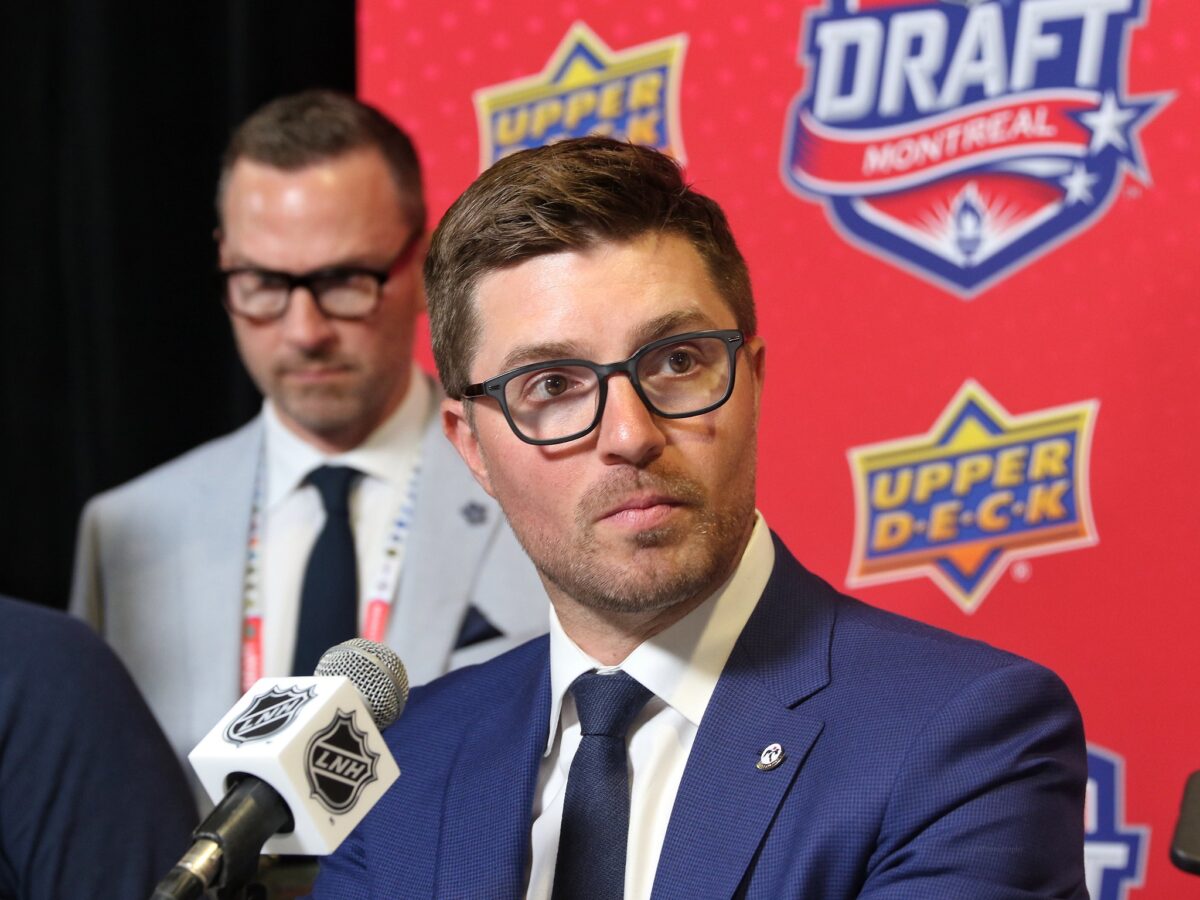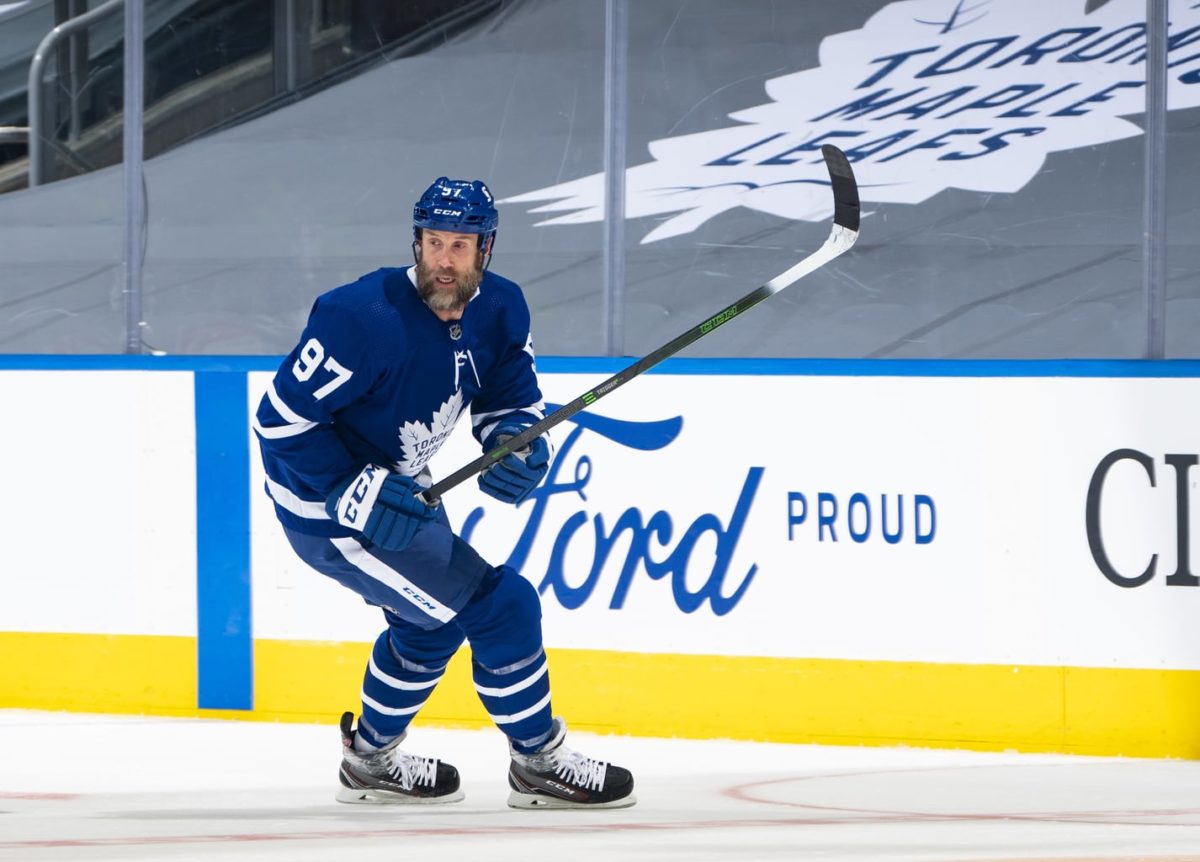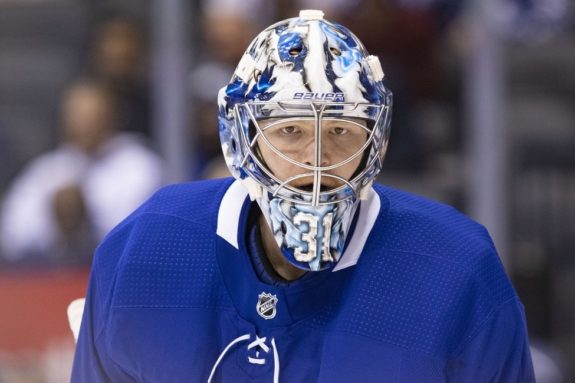In May of 2018, 32-year-old Kyle Dubas became the youngest general manager in the history of the Toronto Maple Leafs and the second youngest in the history of the NHL. (John Chayka was 26 when he was hired by the Arizona Coyotes in 2016.)
Thus Far, Dubas’ Teams Have Had Mixed Success
In the four seasons that he’s been the Maple Leafs’ general manager, Dubas has had mixed success. In that span, the team has had great regular season success. In 2021-22 the Maple Leafs set a franchise record for team points in a regular season with 115 points.

However, the team’s success has been limited to the regular season. As Maple Leafs’ fans know, they’ve not won a single playoff round in those four seasons. What’s made things more frustrating for fans is that they’ve taken every series to its final game before losing.
Related: Maple Leafs News & Rumors: Dubas’ Quinella, Babcock & Bunting
As for Dubas, while he had success as a league executive at other levels of the sport, he had no previous NHL experience. It was natural to expect some kind of a learning curve. With no history in the NHL, we as fans had no idea what his modus operandi was. We had no idea what he valued as the keys to assembling a winning team.
What We Know After Five Seasons of Watching Dubas Work
We are now about to enter the fifth season of Dubas at the helm. We have four years of information to sift through. Using this information, we can get an idea of how he thinks and what he believes are the key values for building a contending team.
Our goal in this post is to sort through what we’ve seen and to decipher how he thinks in general and what his values are.
Key Dubas Value One: Quality over Quantity
It’s obvious that Dubas feels the team’s success will come from its core players. He has strived to make them happy and has shown a willingness to pay them. He’s made Auston Matthews ($11.64 million), John Tavares ($11 million), and Mitch Marner ($10.9 million) three of the highest-paid players in the league. He also awarded generous contracts to William Nylander ($6.96 million) and Morgan Rielly ($7.5 million).
Key Dubas Value Two: Quantity over Quality
As for the makeup of the rest of the forwards outside of his top four, Dubas has signed a multitude of players to cheap “show me” contracts. These players have ranged from overaged former star players well past their prime, to other teams’ restricted agent castoffs, to higher former draft picks who had previously not lived up to their potential, to AHL stars struggling to get a foothold in the NHL.

When you combine Dubas’ history in the Entry Draft of trading down a single higher pick for multiple lower picks and his signing of a number of the above-mentioned players, his strategy is to throw as much as he can against the proverbial wall with the hope that some of these players stick.
Key Dubas Value Three: Brains over Brawn
Dubas has stated a number of times that the thing he values most in players is Hockey IQ. That’s obvious by the type of players he’s drafted. The majority of those players are smaller but highly skilled. While he has acquired some players that come with grit and physicality, he prefers skill over toughness.
Related: 2011 NHL Draft Top 10: Where Are They Now?
Looking at the team’s defense, Jake Muzzin is very physical but also has other attributes. The rest of his defensemen are TJ Brodie, Mark Giordano, Rasmus Sandin, Timothy Liljegren, and Justin Holl. Outside of Holl (who’s a little physical), none of these players are considered to be very physical.
Key Dubas Value Four: The Goaltender is Not King
Some NHL general managers are firm believers that the key to building a winning team starts in the net. They go after the best goaltenders in the NHL and build outward from that goalie.
Dubas does not appear to be one of those general managers. The best goaltender he’s had statistically was the goalie who was on the team when he took over as general manager, Frederik Andersen. He let Andersen walk the season after he took over.

(THE CANADIAN PRESS/Chris Young)
Since then, he’s had nine different goalies play at least one game in the NHL. This season, he’s putting his hopes on two goalies who have had former success but who have struggled of late, in Matt Murray and Ilya Samsonov.
Neither Criticism Nor Praise for Dubas Is Intended
None of the above observations are meant to be either criticism or praise of Dubas as a general manager. They are simply observations.
Related: Maple Leafs’ Fans Must Stop Blaming Dubas for the Team’s Problems
We certainly can’t knock his regular-season success. At some point in time, however, the Maple Leafs must find playoff success. That point in time could very well be this season.
[Note: I want to thank long-time Maple Leafs’ fan Stan Smith for collaborating with me on this post. Stan’s Facebook profile can be found here.]